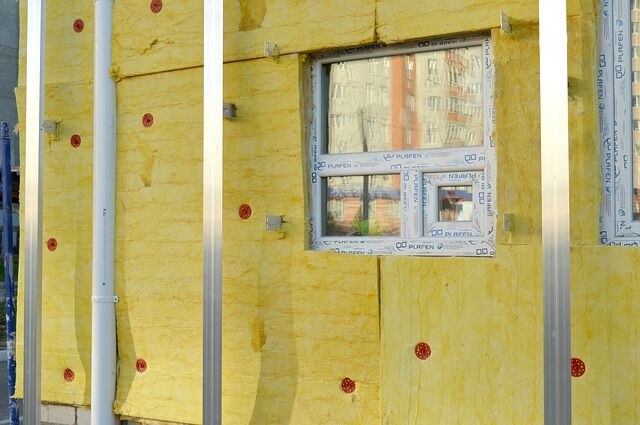
As the planet becomes exposed to more extreme weather conditions, it's no surprise that our utility bills are only becoming more and more expensive. While new technologies have come into play to make our lives more bearable, we often worry about the costs and whether we can afford to maintain our comfort. The fact of the matter is that quality ultimately saves you a ton of money when it comes to insulation, why you need to find out more about how quality insulation cuts your utility bills.
Your AC and Heater Should Not Over-Work
As you can make out from its name, insulation adds a layer of protection to your home and walls. However, to understand how it works to trap the heat effectively, it's crucial to understand how heat flows. Heat passes through three mechanisms: conduction, convection, and radiation. Heat is transferred from warmer to colder environments. This heat will keep traveling until the room temperature becomes balanced.
So what does that mean for you? During the summer, naturally, you turn up your AC to bring down the room temperature. If your walls aren't properly insulated or air-leaks, the heat will seep from the outside into your home, forcing your AC to work overtime and use more electricity. Alternatively, your heaters will keep on working non-stop to compensate for the heat that escapes your home through poorly insulated walls or air-leaks. Insulation works to stop this transfer of heat from the outside to the inside or vice versa.
Understanding The Structure of Your Home Will Save You Money
How can you be sure your house needs insulation? It's safe for starters to assume that old houses built before 1960 will need insulation, with attics being the first place to start. Alternatively, you can get a house audit and determine your insulation needs based on the results. Since 90% of single-family houses have proven to be under insulated, there are high chances that your home might be as well.
Once you carry out the home audit, you'll determine the current insulation quality in terms of type and thickness. The quality of your home insulation is evaluated upon its R-value; the walls' resistance against the transfer of heat. The higher the R-value, the better your insulation is. On the other hand, you may conclude that your house needs insulation if you notice specific issues. For instance, one room may be more prone to cold (or heat) than the rest of the house. You may also see some cracks in the walls or exaggerated electricity bills, all of which point to heat seeping in from somewhere.
Choosing the Right Insulation Materials
Once you narrow down the culprit list to the source of the leak, you'll get a better idea about the kind of insulation you can use. There are many kinds and forms of insulating materials, each having its use and insulation level.
The most common type of insulation comes in the form of batts and blankets. They're widely used by passionate DIYers, owing to their ease of use and efficiency. Furthermore, if you live in a state where the cost of living is high, such as LA, you would be better off using spray foam. This is because it's more durable and would grant more value for your money. A professional LA spray insulation company can insulate your house by filling the cracks and leaks in the walls with liquid spray foam that expands and fills the space. Thanks to its high R-value, spray foam is one of the best insulating materials.
You'll Be Amazed At How Much You Can Save
It certainly sounds promising, but how much will you save with insulation? The fact that insulating your home needs its investment makes many people skeptical. To answer this, let's get some facts straight. According to the EPA, 49% of your utility bills is spent on cooling and heating. This percentage drops down by 15% by insulating your attic, which saves roughly 11% of your total energy costs. Add to that the increased home resale value you get with adding insulation and tax-relief opportunities (read higher energy-efficiency). You can decide for yourself what the winning scenario is.

Instead of relying entirely on your HVAC system to moderate the temperature in your home, it makes a lot more sense to cut utility bills by working from the source. A little insulation here and there can go a long way in trapping the heat inside during the winter and keeping it outside during summer. On the plus side, you'll effectively cut down your utility bills and save on money.



(0) comments
We welcome your comments
Log In
Post a comment as Guest
Keep it Clean. Please avoid obscene, vulgar, lewd, racist or sexually-oriented language.
PLEASE TURN OFF YOUR CAPS LOCK.
Don't Threaten. Threats of harming another person will not be tolerated.
Be Truthful. Don't knowingly lie about anyone or anything.
Be Nice. No racism, sexism or any sort of -ism that is degrading to another person.
Be Proactive. Use the 'Report' link on each comment to let us know of abusive posts.
Share with Us. We'd love to hear eyewitness accounts, the history behind an article.